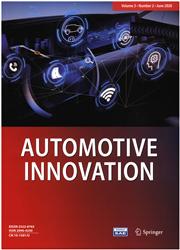Review of DC-DC Converter Topologies Based on Impedance Network with Wide Input Voltage Range and High Gain for Fuel Cell Vehicles
Abstract
The development of fuel cell vehicles (FCVs) has a major impact on improving air quality and reducing other fossil-fuel-related problems. DC-DC boost converters with wide input voltage ranges and high gains are essential to fuel cells and DC buses in the powertrains of FCVs, helping to improve the low voltage of fuel cells and “soft” output characteristics. To build DC-DC converters with the desired performance, their topologies have been widely investigated and optimized. Aiming to obtain the optimal design of wide input range and high-gain DC-DC boost converter topologies for FCVs, a review of the research status of DC-DC boost converters based on an impedance network is presented. Additionally, an evaluation system for DC-DC topologies for FCVs is constructed, providing a reference for designing wide input range and high-gain boost converters. The evaluation system uses eight indexes to comprehensively evaluate the performance of DC-DC boost converters for FCVs. On this basis, issues about DC-DC converters for FCVs are discussed, and future research directions are proposed. The main future research directions of DC-DC converter for FCVs include utilizing a DC-DC converter to realize online monitoring of the water content in FCs and designing buck-boost DC-DC converters suitable for high-power commercial FCVs.

 求助内容:
求助内容: 应助结果提醒方式:
应助结果提醒方式:


